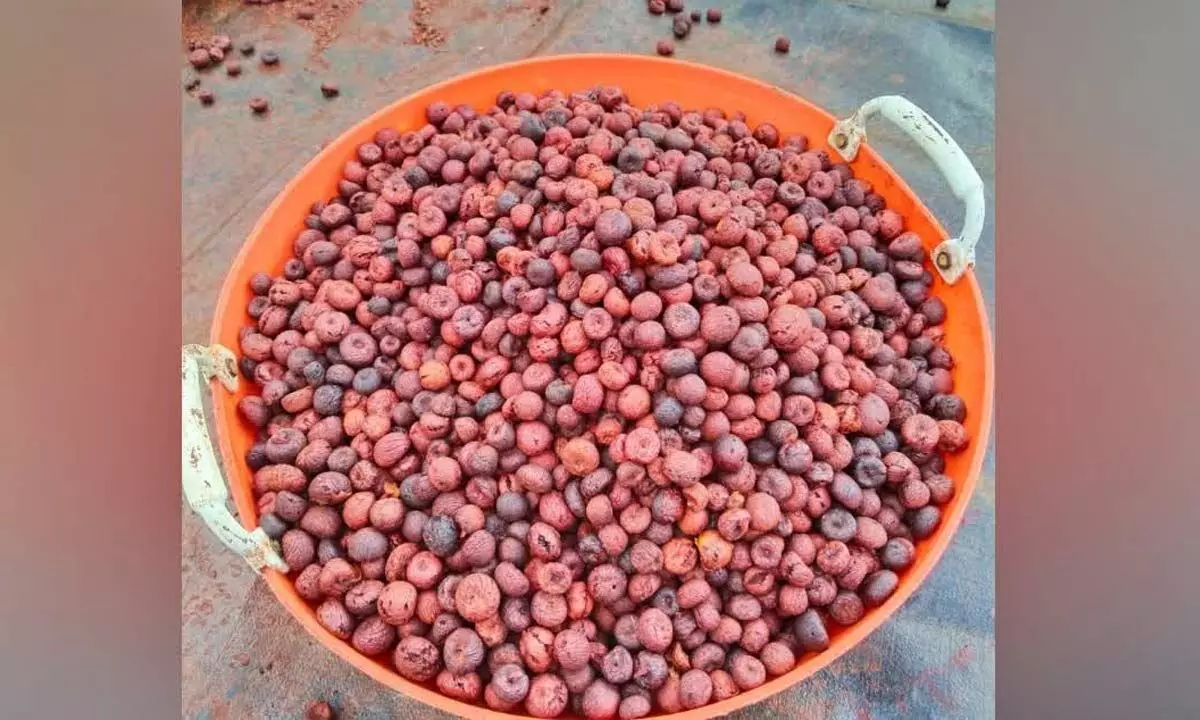Shivamogga farmers in panic after areca nut’s likely carcinogenic risk

A recent report by the International Agency for Research on Cancer (IARC), a part of the World Health Organization (WHO), has sent shockwaves through the farming community in Karnataka
Shivamogga: A recent report by the International Agency for Research on Cancer (IARC), a part of the World Health Organization (WHO), has sent shockwaves through the farming community in Karnataka. The report claims that areca nut, one of the state’s major commercial crops, contains a carcinogenic element, sparking widespread concern among areca nut growers, particularly in Shivamogga and surrounding districts.
In Shivamogga alone, areca nut is cultivated on over 1.21 lakh hectares of agricultural land, making it a key cash crop for farmers in the region. This crop has significantly contributed to the livelihood of farmers, with areca nut cultivation spreading across several districts, including Uttara Kannada, Chikkamagaluru, Hassan, Davanagere, Tumkur, Haveri, and Chitradurga. However, this promising crop is now under threat after the alarming findings about its potential health risks.
The current market price of a good quality batch of areca nuts is Rs 49,898 per tonne, and while prices have not yet been affected by the carcinogenic report, there are concerns that the future of areca nut farming may face serious challenges. Growers are anxiously awaiting further developments, fearing that this report could lead to declining prices and restricted market access.
H.S. Basavarajappa, President of the State Farmers’ Association, voiced the concerns of areca nut growers, stating, “The IARC’s report on areca nut claims it is carcinogenic, but we must question this claim. This is not the first time such a report has been issued. Previously, an organization submitted a similar report to the Supreme Court, but the Karnataka government had conducted its own investigation through multiple research bodies and concluded that areca nut is not carcinogenic.”
Basavarajappa argued that the report could harm the reputation of the crop, stressing that areca nut is not a cause of cancer and should not be banned. He further emphasized that areca nut, like betel leaf, holds cultural significance in the region, and no diseases can be caused by its consumption. “Such reports are harmful and should not be published. The central government must reassure areca nut growers and protect their interests,” he urged.
In addition to the health concerns raised by the IARC report, areca nut farmers face a host of other challenges that affect their livelihoods. Hittur Raju, a farmer from the region, pointed out the unpredictable nature of rainfall, which plays a crucial role in areca nut production. “Rain is like a gamble for us. If there is excessive rainfall, the yield decreases due to waterlogged soil, and if there is insufficient rainfall, the nuts fall off before they mature,” Raju said.
Farmers are also grappling with issues such as rot disease and leaf spot disease, which further diminish the quality and quantity of the crop. Moreover, the import of areca nuts from other countries, as part of foreign trade agreements, has led to a drop in domestic prices, further exacerbating the challenges faced by local growers.
While the current situation is filled with uncertainty, farmers are hoping that the state and central governments will take proactive steps to support the areca nut industry. “The government needs to take immediate action to protect the livelihoods of farmers. If the areca nut crop is banned or its market value declines due to the carcinogenic report, it will leave thousands of families in distress,” Basavarajappa warned.
The future of areca nut farming in Karnataka now depends on how both the government and the agricultural research community address the concerns raised by the IARC report. Farmers are urging for further studies and clarification to avoid unwarranted panic and to protect the interests of those who rely on areca nut cultivation for their livelihoods.
With areca nut farming being a significant contributor to the economy of Shivamogga and other districts, the need for accurate scientific research and government intervention has never been more pressing.
As the debate continues, the fate of Karnataka’s areca nut growers hangs in the balance.









